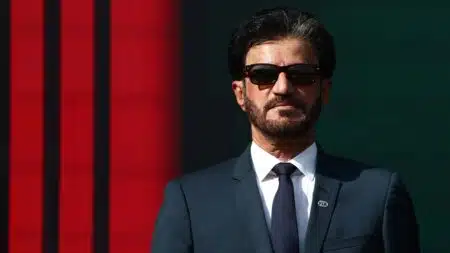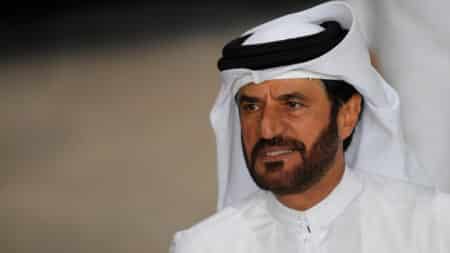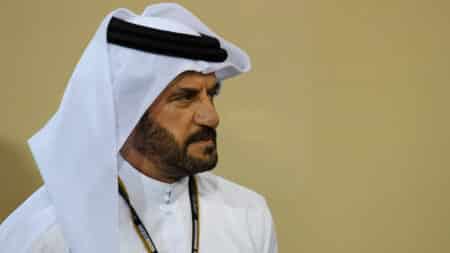The only remaining challenger to FIA president Mohammed Ben Sulayem has dropped out of this year’s leadership election, hitting out at the ruling body’s “illusion of democracy”.
Former steward Tim Mayer said that the FIA’s election process had made it impossible for anybody to stand against Ben Sulayem and that the result showed “that is not democracy”.
As reported earlier this month, it was expected that the current president would be elected unopposed, because of the FIA’s restrictive rules.
Every presidential candidate must be backed by several senior motor racing figures, from a list drawn up by the FIA.
But the latest list, published earlier this year, was much shorter than before and effectively left opponents unable to assemble the required supporters.
“Quite simply, there is no choice,” Mayer said of his decision to withdraw. “There will be no vote between ideas, no contest of visions, no test of leadership. There will be only one candidate and that’s not democracy – that’s the illusion of democracy.”
The support needed to run as FIA president
All FIA presidential candidates are required to submit a full leadership team consisting of seven vice-presidents for sport, from every global region: one each from Middle East and North Africa (MENA), Africa, North America, South America, and Asia-Pacific, as well as two from Europe.
These individuals must be on the FIA’s list of candidates for the World Motor Sport Council, which sets rules and standards for international motor sport. Each person can only support one presidential candidate.
The list for this year’s election contained 29 names — 27% smaller than at the last election — and made it impossible for more than one presidential candidate to stand.
In South America, Fabiana Ecclestone is the only certified candidate and she is already aligned with Ben Sulayem’s ticket, so nobody can challenge him. Only two candidates from Africa were nominated, both supporters of Ben Sulayem.
The FIA responded to Mayer’s comments saying the election process was structured to “ensure fairness and integrity at every stage”.
“The requirements for the 2025 FIA elections, including the relevant deadlines and eligibility criteria for the Presidential List and World Councils, are defined in the FIA Statutes and Internal Regulations, which are publicly available on the FIA’s website,” the FIA said in a statement.
“Detailed information regarding these elections has also been made available on a dedicated page on the FIA’s website since 13 June 2025 and communicated to all FIA Members.
“The requirements related to the regional representation of the Vice-Presidents for Sport, and to select them from the World Motor Sport Council in order to draw up a Presidential List, are not new. These criteria applied to previous elections.
“As to be expected, preparing a candidature for a Presidential List or the World Councils requires certain steps to be taken. Prospective candidates have had since the publication of the detailed information on 13 June to prepare their applications.”
Mayer’s campaign continues
On Friday, American Mayer announced he was withdrawing from the election after being unable to meet the requirements for a candidate.
Mayer insisted that while the election was over, his campaign would go on in the search for a fairer system.
“The real campaign continues. For every club that still believes fairness matters; for every sport and mobility club that seeks equal access to information, funding, and opportunity; for every participant who believes the FIA should support them, not compete with them.
“We will continue to speak out for those who cannot and we will not rest until every member club feels free to speak for itself.
“Across our extensive travels around the globe, many Member Clubs told me ‘We want to speak, but we can’t’. They fear losing projects, funding, or recognition if they question the current system and that’s why FIA Forward must persist — not for power, but for principle.
“So, while the rules of the election mean that there will be no election, our cause continues. Our campaign is not over, it is just entering a new phase. We will keep driving the FIA forward until democracy, service, and partnership are not just words in a statute, but the living values that define our Federation every day and we can bring into being the changes the FIA so desperately needs.”





